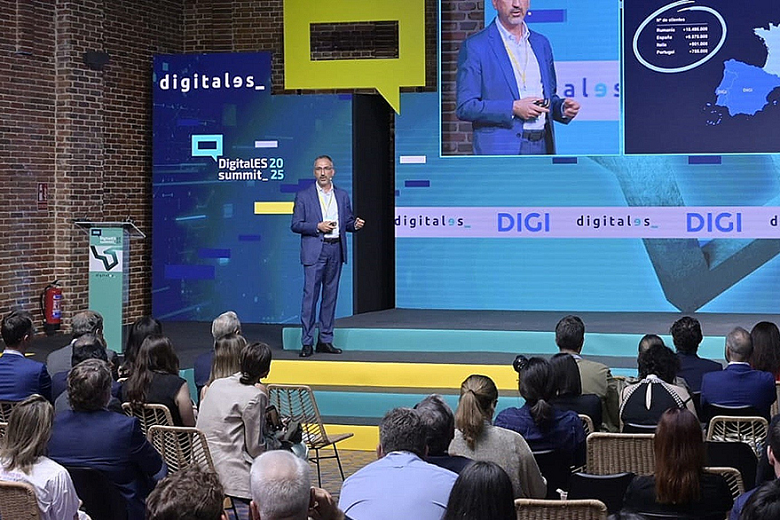Digi to invest 2 billion in Spain to exceed 5,000 mobile antennas

The company's fibre will reach 20 million Spanish homes by 2030.
DIGI’s CEO in Spain Marius Varzaru has announced that the Romanian company will invest 2billion euros in our country between 2024 and 2030, thereby reaching 20 million homes with its fibre optic network, and exceeding 5,000 antennas to provide coverage for its mobile telephony.
The announcement came during his participation in the DigitalES Summit forum, in which he also referred to the investment that the company has made in our country over the last eight years with the aim of "providing connectivity within the reach of all." Thanks to this investment effort, Digi has brought its fibre optic network to 12.5 million homes between 2018 and 2025. As a result, it has reached 2.1 million fibre customers and 5.7 million mobile customers, many of them attracted by its convergent offer.
Job creation
Digi's vertical integration strategy, with which it wants to have exhaustive control over the quality of its service and costs, is also a commitment to job creation. The company has created 9,300 direct jobs in the last eight years. It now employs more than 9,500 people and expects to reach 10,000 by the end of this year.
The commitment to invest 2 billion euros between 2024 and 2030 confirms the project to complete the roll-out of FTTH (fibre to the home) networks to 20 million homes with smart fibre. This milestone could be reached even before the end of this period.
Implementation of mobile antennas
Part of this investment will be used for the implementation of mobile antennas with Digi coverage. The telecommunications company’s target is to reach 5,000 antennas in the next three years and 10,000 in the longer term.
For Varzaru, there are two reasons that attract four out of five of its fibre customers: the deployment of XGS-PON technology, available in 93% of its network coverage, and its competitive pricing proposition. In addition, at least one in four customers reach the fibre market via Digi, or at least did not have this service in the three months prior to signing their contract.
Photo: Digi




